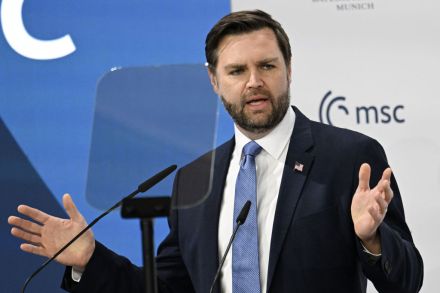Why JD Vance’s Munich speech matters
When was the last time a new U.S Vice President gave a truly memorable speech? The post has traditionally been regarded as being ‘not worth a bucket of warm spit’. But JD Vance is now changing all that, after two striking speeches in as many days. First, there were his comments in Paris on the EU and AI. Then, yesterday, he shocked the Munich Security Conference, by lambasting Europe’s record on free speech. Delegates arrived, thinking they would hear Vance address the key question of America’s involvement in European security, after a week of confused messaging by his cabinet colleague Pete Hesgeth. Instead, he delivered a double-barrelled assault on various





















